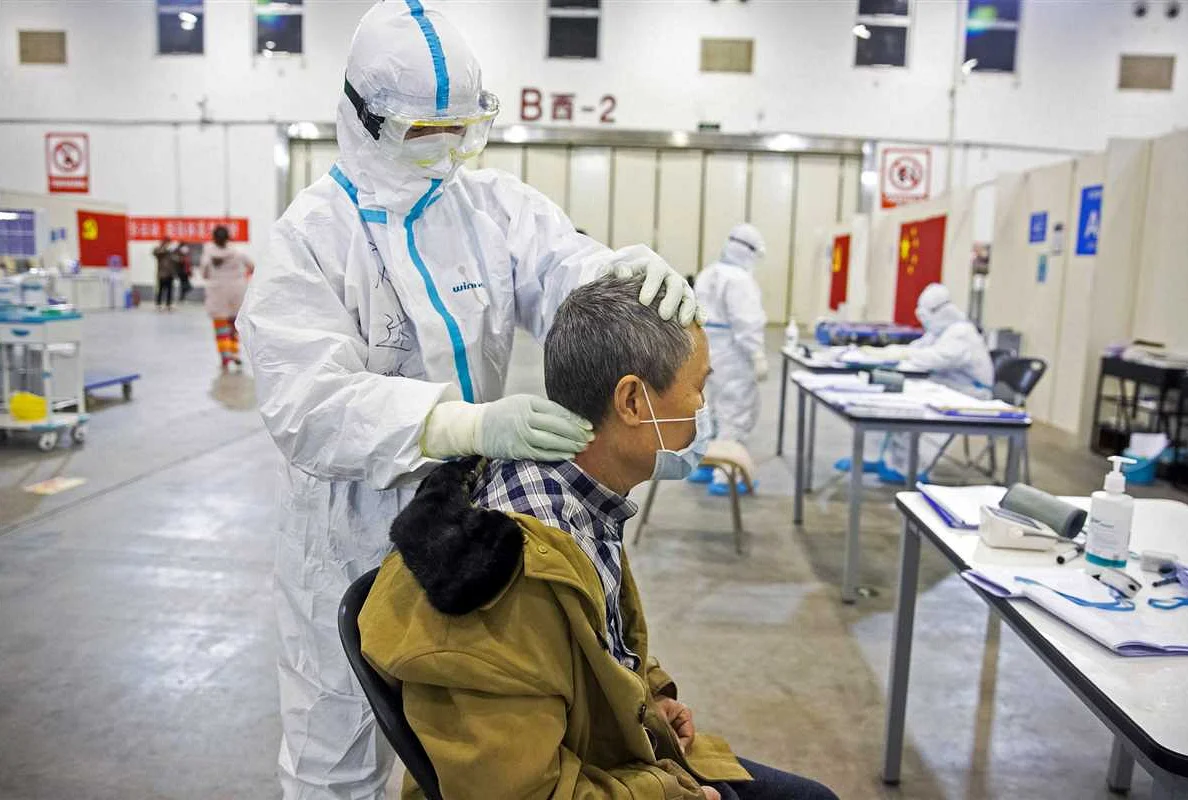Gender Differences in Coping with Infection
Содержимое
Explore the differences in how men and women cope with infection. Learn about the unique immunological responses and hormonal factors that contribute to variations in immune system function and disease outcomes between the sexes. Discover the latest research and insights on gender-specific strategies for managing and preventing infections.
When it comes to coping with infection, men and women often exhibit differing patterns of behavior and responses. Understanding these gender differences can provide valuable insights for healthcare professionals and individuals alike, enabling them to tailor approaches to prevention, treatment, and recovery based on individual needs and preferences.
Research has shown that men tend to downplay symptoms and delay seeking medical help when they are sick. This behavior may be rooted in societal expectations and traditional gender roles that discourage men from expressing vulnerability or seeking assistance. On the other hand, women are generally more proactive about their health, seeking medical attention sooner and following treatment plans more diligently.
The variation in coping mechanisms between men and women may also be influenced by biological factors. Hormonal differences, for example, could contribute to variations in immune responses and tolerance to pain. Studies have suggested that gender-specific hormones, such as estrogen and testosterone, play a role in shaping the body’s immune system and inflammatory responses, potentially affecting susceptibility to infections and the ability to cope with them.
Recognizing and addressing these gender differences in coping with infection can lead to improved outcomes for both men and women. By promoting awareness and education surrounding these issues, healthcare providers can encourage men to seek medical care earlier and empower women to take an active role in managing their health. Moreover, individuals can benefit from understanding their own coping styles and exploring strategies that align with their unique needs, ultimately optimizing their ability to overcome infections and maintain overall well-being.
Impact of Infection on Men and Women
The impact of infection can vary between men and women due to biological, social, and cultural factors. Biological differences such as hormone levels, immune responses, and the presence of certain genetic predispositions can influence how men and women cope with infections.
For example, studies have shown that women tend to have stronger immune responses to certain infections, such as influenza, which may result in better outcomes compared to men. This could be attributed to the role of estrogen in enhancing immune function. On the other hand, men may be more susceptible to severe respiratory infections due to higher levels of ACE2 receptors, which the SARS-CoV-2 virus uses to enter cells.
Social and cultural factors also play a role in how men and women cope with infection. Gender norms and expectations can influence health behaviors, access to healthcare, and patterns of seeking help. For instance, men may be less likely to seek medical attention early on when experiencing symptoms, leading to delayed diagnosis and treatment.
Furthermore, the social roles assigned to men and women can affect their exposure to infectious agents. For instance, women often have greater exposure to infections due to their roles as caregivers, healthcare workers, or community leaders. This increased exposure can impact their susceptibility to infections and their ability to cope with them.
Understanding these gender differences in coping with infection is crucial for developing effective prevention and treatment strategies. By recognizing the unique challenges faced by men and women, healthcare providers can tailor interventions to better meet their specific needs. It is essential to promote awareness, education, and support systems that address these gender differences and empower individuals to take proactive measures to protect their health.
Biological Factors Influencing Coping Mechanisms

Biological factors play a significant role in influencing how individuals cope with infection. These factors can differ between men and women, leading to variations in coping strategies.
One biological factor that influences coping mechanisms is hormonal differences. For example, women have fluctuating hormone levels throughout their menstrual cycle, which can affect their emotional and cognitive functioning. This may impact their coping strategies, as they may be more likely to seek social support or engage in emotion-focused coping during certain phases of their cycle.
Another biological factor that affects coping mechanisms is genetic predisposition. Research has shown that certain genes can influence an individual’s susceptibility to stress and their ability to cope with it. Men and women may have different genetic variations that impact their coping strategies. For instance, some genes may be associated with a higher risk of developing mental health issues in men, leading them to use different coping mechanisms compared to women.
Additionally, the immune system also plays a role in coping with infection. Men and women have different immune responses, which can impact their coping mechanisms. Women tend to have stronger immune responses and higher levels of antibodies, which may contribute to their ability to cope with infection. Men, on the other hand, may rely more on problem-focused coping strategies to deal with the physical symptoms of infection.
Overall, biological factors such as hormonal differences, genetic predisposition, and immune responses can influence how individuals cope with infection. Understanding these factors can provide valuable insights for developing gender-specific coping interventions and support strategies.
Socio-cultural Factors Shaping Coping Strategies

Socio-cultural factors play a crucial role in shaping coping strategies for men and women when facing infections. These factors encompass a wide range of social and cultural influences that vary across different societies and communities.
One important socio-cultural factor is gender norms and expectations. In many societies, there are established gender roles that dictate how men and women should behave and respond in times of illness. These gender norms can influence the coping strategies individuals adopt. For example, men are often socialized to be stoic and avoid showing vulnerability, which may lead them to downplay their symptoms or delay seeking medical help. On the other hand, women are often encouraged to prioritize the well-being of others and may be more likely to seek support and express their emotions when faced with infection.
Another socio-cultural factor that shapes coping strategies is access to healthcare. In certain societies, there may be disparities in healthcare access based on gender, socioeconomic status, or geographical location. These disparities can impact the coping strategies individuals employ. For instance, individuals with limited access to healthcare may rely more on self-care practices or home remedies. Additionally, cultural beliefs and practices related to healthcare may influence the coping strategies individuals adopt. For example, individuals from certain cultural backgrounds may rely on traditional medicine or alternative therapies as a way to cope with infections.
Social support networks also play a significant role in shaping coping strategies. The availability and quality of social support can vary across different cultures and communities. Women tend to have larger social networks and may rely more on informal support systems, such as friends and family, during times of illness. In contrast, men may have smaller support networks and may be less likely to seek emotional support. These differences in social support can influence the coping strategies individuals utilize.
Overall, socio-cultural factors significantly shape the coping strategies employed by men and women when facing infections. Understanding these factors can provide insights into why individuals may adopt certain coping strategies and help healthcare providers tailor support and interventions to meet the unique needs of individuals from different socio-cultural backgrounds.
Psychological Differences in Coping with Infection

Psychological differences play a significant role in how individuals cope with infection. While both men and women experience various emotional and cognitive responses to illness, research shows that their coping strategies may differ.
1. Emotional Expression: Women tend to express their emotions more openly compared to men. They are more likely to seek support from others and engage in verbal expression of their feelings. This emotional expression can be beneficial as it allows women to release stress and gain social support, which can enhance their coping abilities during infection.
2. Problem-Solving Skills: Men often rely on problem-solving skills to cope with infection. They tend to focus on finding practical solutions and taking action to address the situation. This approach may help men feel more in control and proactive, enabling them to better manage the challenges posed by infection.
3. Social Support: Both men and women benefit from social support when dealing with infection, but the types of support they seek may differ. Women often seek emotional support, such as empathy and understanding, while men may seek instrumental support, such as advice or assistance in solving practical problems related to their illness.
4. Cognitive Appraisal: Men and women may also differ in their cognitive appraisal of infection. Women often perceive illness as a more significant threat and may worry more about the potential consequences. On the other hand, men tend to downplay the severity of infection and may have a more optimistic outlook, which can impact their coping strategies.
Understanding these psychological differences in coping mechanisms can help healthcare professionals develop targeted interventions and support systems for both men and women. By acknowledging and addressing these differences, individuals can receive the appropriate assistance they need during their journey of managing and recovering from infection.